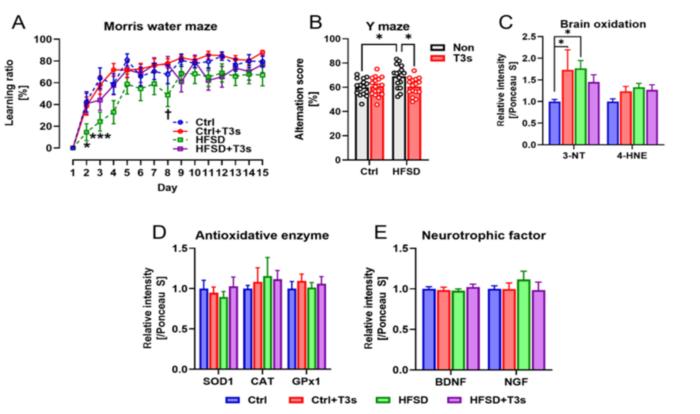Obesity rates have been rising worldwide, and this condition is linked to various health problems, including heart disease, diabetes, and even brain-related issues like Alzheimer’s and Parkinson’s. Researchers are working to understand how obesity affects the brain and find ways to prevent cognitive decline.
Vitamin E Compounds Offer Potential Solutions
A recent study published in the International Journal of Molecular Sciences by Assistant Professor Yugo Kato from Tottori University and Shibaura Institute of Technology, along with Professor Koji Fukui from Shibaura Institute of Technology and their team, investigated how natural compounds called tocotrienols (T3s) might help protect the brain from the negative effects of obesity. T3s are part of the vitamin E family and have shown promise in previous studies for their brain-protective and anti-obesity properties.
Testing the Effects of Tocotrienols in Mice
To study how T3s might help with obesity-related cognitive decline, the researchers used a mouse model system. They fed mice either a high-fat, high-sugar diet (HFSD) or a control diet, with or without T3s added. They then measured various factors, including body weight, fat deposits, blood cholesterol, triglyceride, and glucose levels, as well as cognitive function using maze tests. They also looked at markers of oxidative stress and protein changes in the brain.
Promising Results for Brain Protection
The study found that while T3s did not prevent weight gain in mice fed the HFSD, they did significantly improve cognitive function and learning ability. The researchers also discovered that the HFSD increased oxidative stress in the brain, but T3s seemed to reduce this stress, suggesting a possible way they might protect the brain. Surprisingly, the team also found that the HFSD decreased metabolism and increased temperature around brown fat tissue in the mice, indicating that this type of diet may have complex effects on the body’s metabolism and temperature regulation.
Protein Changes in the Brain
The researchers also looked at how the HFSD affected protein levels in the mouse brain. “Lastly, we wanted to examine the protein change associated with the consumption of the HFSD. So, we performed a quantitative proteomic analysis of the mouse cortex. Our focus was on the proteins that were expressed differently between the HFSD and control groups,” explains Prof. Kato. They found that the HFSD changed the levels of 12 proteins compared to the control diet, and T3s significantly prevented these changes.
A Step Forward in Understanding Obesity and Brain Health
This study provides important insights into how obesity affects the brain and how natural compounds like T3s might help protect against cognitive decline. The findings open up new possibilities for developing treatments to prevent neurodegenerative diseases linked to obesity.

